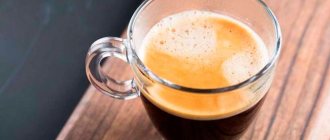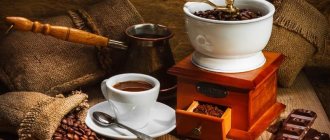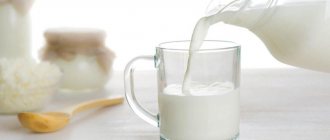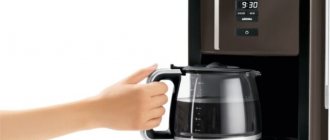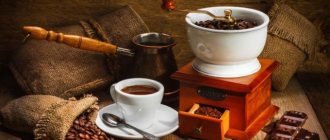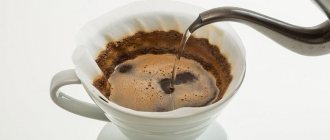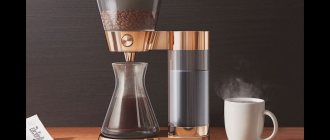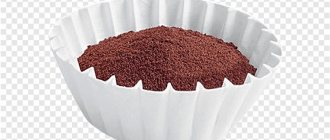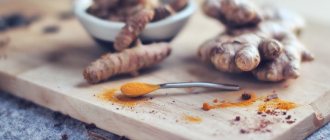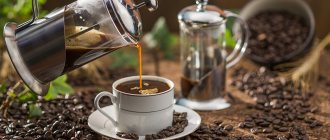Anyone who has ever delved into the world of coffee has probably heard the debate about bleached vs natural coffee filters. But is there really a difference between them?
There are many coffee lovers who prefer natural filters. Of course, just as many people believe that bleached products are much better or that there is not much difference. Today we will look at all types of filters. We will find out what the difference is between these options, whether they really affect whether the coffee will be good or bad.
Bleached filters
What are bleached filters? Essentially, it is paper that has gone through a bleaching process. Natural paper is not actually white (for comparison, think of cheap paper bags in stores). The following products are used in the whitening process:
- Chlorine.
- Oxygen.
Chlorine is a substance that is used to clean swimming pools and is very often used to bleach filters. However, products that are bleached with oxygen are considered to be of higher quality. If you are looking for a high-quality bleached filter, then you might want to look at products that use oxygen for bleaching.
Coffee filters Mr. Coffee Basket, 8-12 cups, white paper, 8 inches, boxes of 50. (pack of 12 pcs.)
Approximate cost: $21.01
Unfortunately, bleached filters are not good for the environment. Firstly, this is an additional process during production and unnecessary costs. Second, products containing bleach can pollute the environment when disposed of, even though they contain only a small amount of chlorine. Therefore, products bleached with oxygen are more environmentally friendly. Oxygen is much more beneficial to the environment, unlike chlorine.
Unbleached filters
Unbleached filters look dull and are not white. But they are natural and safe for the environment. All paper is initially brown, so it must be further bleached if necessary. Unbleached filters do not go through this process. As they decompose, the remaining chemicals return to the soil without causing any harm to it, unlike bleaching agents such as chlorine.
Quantum Positive - Unbleached Coffee Filters, 100% Biodegradable, Natural Brown Filters, 12 Mugs
Approximate cost: $18.98
There are some features you need to be aware of before you start using unbleached filters. If you simply put an unbleached filter in your coffee machine, your drink may taste papery. Fortunately, it is very easy to prevent this situation with these simple steps:
- Place the filter in the coffee machine.
- Pour in a little water to wet it completely.
- Discard the water that was used to wet the filter and start brewing coffee.
Doing these extra steps will eliminate the papery taste in your coffee. It will even be difficult to determine whether the drink was made using an unbleached or bleached filter.
Can I do it myself?
Making a coffee filter at home is quite simple. If you use a paper version, then you can use towels, napkins or plain printing paper as a base. The main thing is that there are no typographic elements or drawings on it. In addition, the paper must have increased density.
The fabric has good properties. For the filter device, simple cotton material or products based on it are suitable. Gauze, a piece of old sheet or bandage works well.
Main quality
Natural and bleached filters have little effect on the taste of coffee. However, the quality of the purchased products may have an impact. When choosing filters, you should not try to save money. A difference of a few rubles can significantly affect the taste of the drink.
When choosing a product, you should pay attention not only to the size needed for your favorite coffee preparation method, but also to the thickness. Thin filters allow water to pass through faster. This will definitely affect the coffee brewing process, and not in the best way. The thicker the filter, the more expensive it is. However, the difference in prices is so small that it should be neglected. After all, isn't that so important?
on one's own?
Sometimes paper filters run out at the most inopportune moment. It doesn’t matter, you can use various available means and still prepare a cup of your favorite aromatic drink. Among the options offered by Internet users:
- Plain paper, but preferably less dense. Try rolling a filter out of it and see if it allows water to pass through.
- Paper towels. Guaranteed to let water through, a good option.
- Table napkins, preferably more expensive and dense ones, those that are large in size, often double-layered, possibly with a pattern. Can be laid in 2 layers. Use the thinnest ones folded as they are in the package, alternatively - 2 pieces each. You can also use unscented handkerchiefs.
- Calico fabric, especially washed, is a very convenient option; you just need to cut it approximately in the shape of a paper filter. The edges don’t need to be processed in any way, this is for one time use only. In extreme cases, you can wash and use again.
- Several layers of gauze or a sterile pharmaceutical bandage, but the bandage must be washed to get rid of the pharmaceutical smell and taste that can transfer to the drink.
A little about prices
Now you know why quality is so important and understand that when you buy bleached or unbleached filters, you are actually choosing a color. Now it’s worth talking about the cost of products. Unbleached filters go through fewer processes during production, but for some reason they are more expensive than bleached ones.
If you want to save money, then it is better to buy oxygen bleached filters. They are slightly thicker than other cheap alternatives. Of course, if you do not want to harm the environment, it is still better to choose unbleached products. Just remember that you will have to pay a little more for them.
How to brew correctly?
To make unusual coffee at home, follow this recipe:
- Pour water and bring to a boil. Its optimal temperature is +96°C.
- Place grains in the filter at the rate of 1 tbsp. l. with a slide for 140 ml of liquid (for 1 cup).
- Pour water over the grains.
- Wait 10-20 seconds for the flavor of the variety to develop.
- Add liquid and enjoy the drink.
The extraction time of the drink is 8-9 minutes.
Suitable varieties
Different varieties and types of beans are suitable for coffee machines. If you want to experience the berry shade and aromas of flowers, you can use varieties from Africa, Ethiopia and Kenya. If you want a classic taste, choose Brazil.
So which is better?
In fact, there are too few differences between bleached and unbleached filters. Of course, bleached products go through an additional process in production, so they contain some kind of bleach. But none of the types of filters affect the taste of coffee. Unbleached filters are almost always safer for the environment. If you are concerned about the state of Mother Earth, then you should buy natural filters.
Whatever you choose, always buy high quality products. This will definitely affect the taste of the final drink. But the level of bleaching does not play any role at all. Simply choose the size and thickness you need so you can enjoy a great cup of your favorite drink every time.
In the world of coffee lovers, there is a lot of controversy about these simple products - filters. Should I use a paper or metal filter? The disagreement on this issue has been going on for many years, and it looks like it will continue for just as long.
But which filters make the best coffee? Of course, a lot depends on subjective perception. After all, the best coffee isn't always what it's cracked up to be. To help resolve this debate, let's look at the different types of filters and try to choose the best one.
Paper and metal coffee filters
Maybe you're having a hard time deciding which filters to use. We'll answer a few questions about them. Ultimately, you will be able to determine what suits you best.
Which coffee filters are more expensive?
Metal filters are much more expensive than paper filters. This fact will not surprise anyone. Packaging paper products is cheaper, but you need to constantly buy more of them. If you drink coffee in large quantities, you will have to buy them very often. Overall, you will save more in the long run if you buy a metal filter.
What about the environment?
We should all care about the environment and do what we can to reduce our negative impact on the world. Metal filters obviously win here. Of course, you can recycle old coffee and make it into compost, but how many people are willing to do that? Don't worry, most of us don't have time for this. If you care about the environment, then a metal filter is the ideal option.
Universal Gold Coffee Filter (6–12 mugs)
Approximate cost: $17.96
Which filter is easier to clean?
The answer to this question depends on personal opinion. They say that paper filters are much easier to clean compared to metal ones. In the case of a paper product, you just need to pull it out and throw it away. The metal filter must be emptied and then rinsed after each use. In addition, it should be rinsed periodically in the sink or dishwasher to ensure it is always clean and ready for use.
Which filter is best for you?
Coffee can affect health in many ways, and not always in a positive way. Coffee contains cafestol, an oil that increases cholesterol levels. When using paper filters, some cafestol is removed from the coffee. Because of this, many experts believe that paper products are the best option for those who are concerned about their health.
However, these bright white paper filters did not become so on their own. They are bleached with a chemical called dioxin. Despite the lack of substantial evidence, many experts are concerned that bleach may leach into coffee when using these filters. If you use metal products, you won't have to worry about the bleach getting into your body.
However, there is another option. You can always switch to natural paper filters. They do not contain dioxin, but still filter out cafestol. This is the best option if you are concerned about your health.
Does the type of coffee filter affect the taste of the drink?
Perhaps nothing else matters to you if your coffee tastes bad. Right? Paper and metal filters produce different tasting drinks. This is what can help you make your choice.
Since metal filters do not remove large amounts of cafestol from the drink, the oils remain in the coffee. Its taste becomes more pronounced and rich compared to a drink prepared using paper filters. If you like coffee with a strong taste, then you should choose a metal filter.
Paper products, on the other hand, filter coffee better. The result is a drink with a much brighter taste, while it has much less impact on the body. Many coffee lovers prefer this taste.
However, with paper filters there are a few things to consider. They can cause coffee to taste papery. To prevent this, you should first rinse the filter with hot water. True, this takes extra time.
So, if you like your coffee with a rich flavor or don't care about what gets left behind in your drink, then go for a metal filter. If you like a lighter and brighter taste, opt for paper products.
Features of the technique
During filtration, boiling water slowly passes through a layer of coffee powder. In this case, the grounds do not get into the finished drink. It remains in the filter. The preparation technology is similar to brewing espresso, but has certain differences.
To obtain a classic Italian drink, water must pass through coffee fractions under pressure. This takes no more than thirty seconds. The grinding of the grains should be fine. They must be compacted tightly.
When brewing a filtered version, the liquid passes through the coffee powder much more slowly. In this case, only gravity is used. The grinding of the grains should be coarse or medium. This point must be taken into account. Otherwise, there will be no air space left for water to seep through.
When using this technique, the liquid interacts with the crushed grains much longer. Thanks to this, the finished drink is much denser and stronger.
Coffee preparation method used
If you do not use a metal filter, all this debate is just one theory for you. Some coffee machines already come with a filter. You can also order it instead of using paper filters. Of course, sometimes metal products are not suitable at all for certain cooking methods. This applies, for example, to pour-over systems. If you want to purchase a metal filter, you will have to consult the manufacturer. If they don't have one, it's worth purchasing a new coffee machine.
The debate about which filters are better – paper or metal – has existed for a long time. As you can see, there is a noticeable difference between these types. In addition, they produce different types of coffee. Both types of filters bring something unique to the world of this drink. Which filter you choose depends primarily on your tastes. We recommend that you try both types and then choose the one you like best. After all, that's what's important here, isn't it?
Good luck!
History of invention
While humanity has been drinking coffee for hundreds of years, the paper filter was invented relatively recently, just over a century ago, by a German housewife named Melitta Benz. Melitta didn’t like coffee sediment in the cup, and came up with the idea of putting a blotter from her son’s notebook into a small pot with holes. Already in 1908, the method was patented, and the Melitta company, which today is run by the grandchildren of an enterprising woman, is still a leader in the production of disposable coffee filters.


